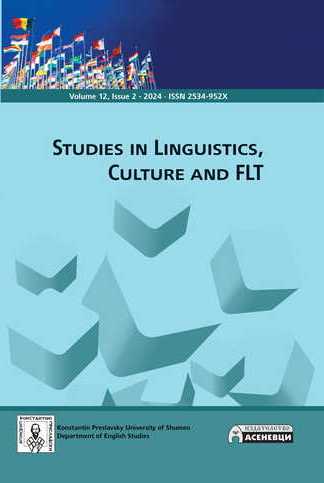Modality in climate change and environmental discourse by Greenpeace Australia Pacific
Modality in climate change and environmental discourse by Greenpeace Australia Pacific
Author(s): Oleksandr KapranovSubject(s): Language and Literature Studies, Applied Linguistics, Descriptive linguistics
Published by: Шуменски университет »Епископ Константин Преславски«
Keywords: discourse; Greenpeace; modality; modal verbs; modals;
Summary/Abstract: The issue of climate change poses a serious challenge to the world we live in. People’s concerns with the issue of climate change and environmental agenda are echoed by a number of nongovernmental organisations, for instance, Greenpeace Australia Pacific (GAP), which communicates its views on the matter to the public and selected target groups on Social Networking Sites (SNSs), such as Facebook. Currently, however, there is insufficient scholarship on GAP’s communication on SNSs. In particular, little is known about the role of modality in GAP’s climate change and environmental discourse on Facebook. The article presents a mixed-methods study that investigates how modality, which is often associated with modal verbs, is used by GAP in its communication on Facebook. The study involves a corpus of GAP’s status updates on Facebook that are investigated for the frequency of the occurrence of modal verbs and their pragmatic roles. The results of the analysis reveal that the most frequently occurring modal verbs in the corpus are can, will, and would, which perform a range of pragmatic roles that are further discussed in the article
Journal: Studies in Linguistics, Culture, and FLT
- Issue Year: 12/2024
- Issue No: 2
- Page Range: 009-032
- Page Count: 24
- Language: English

